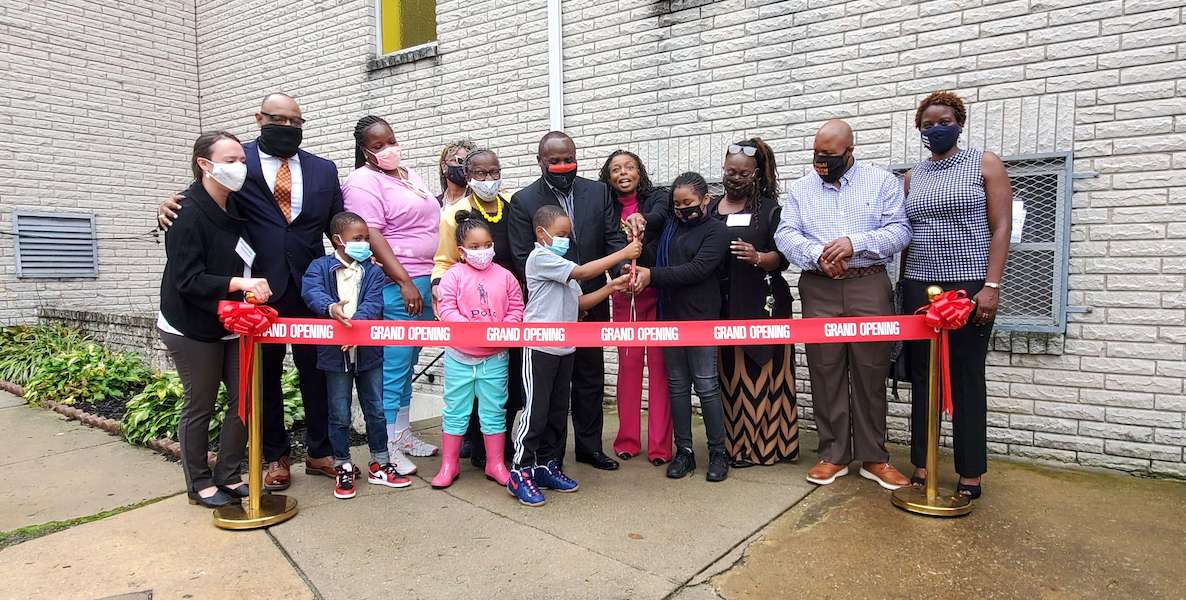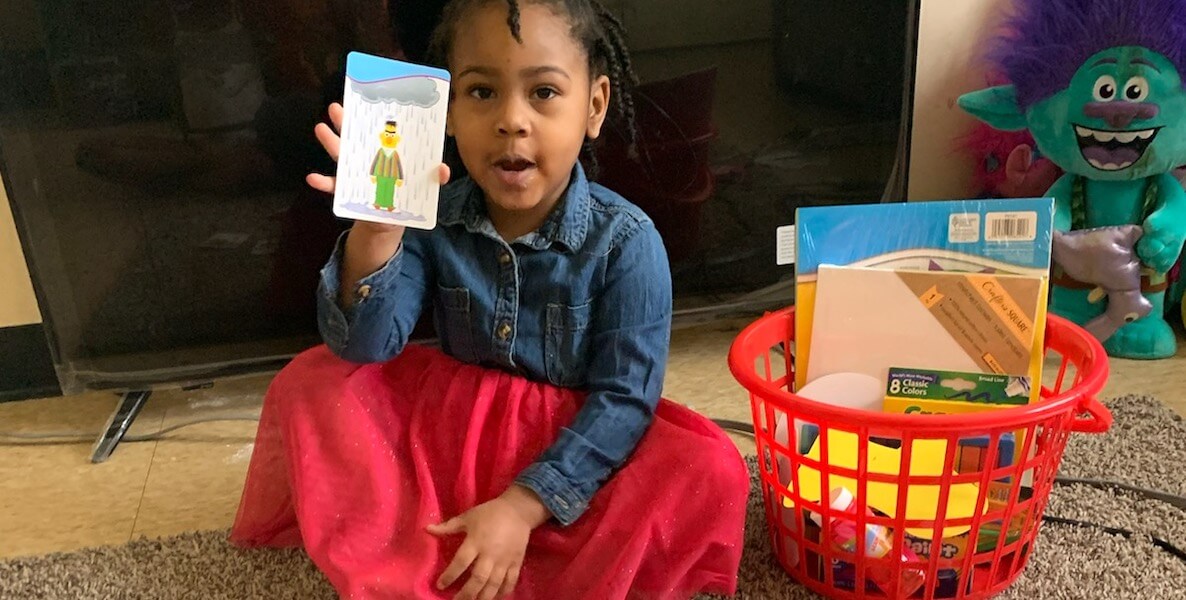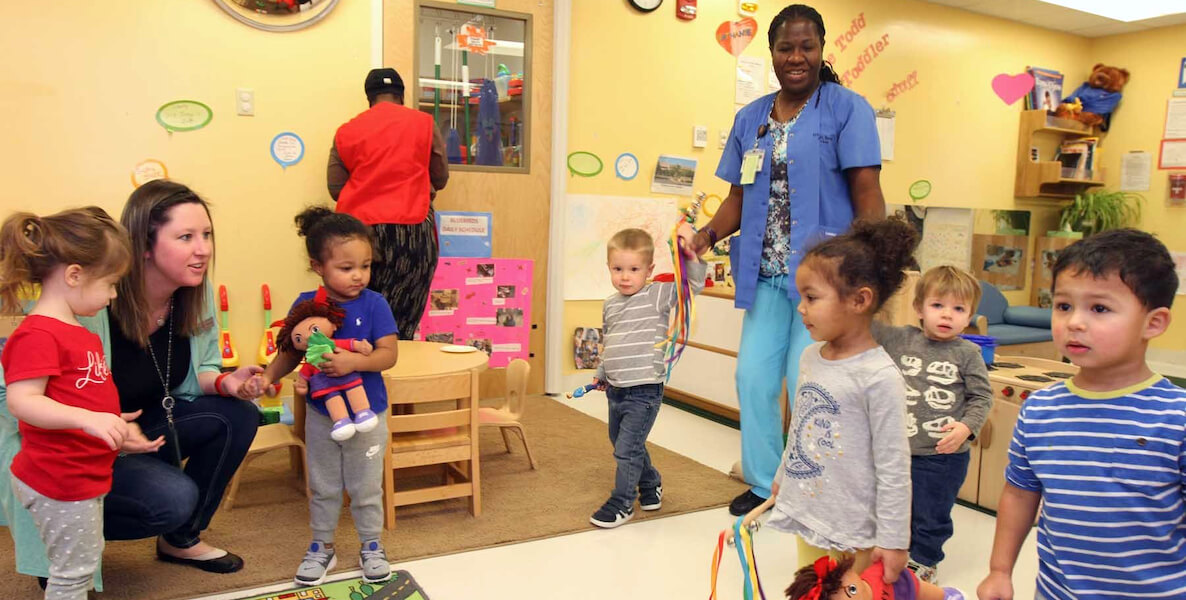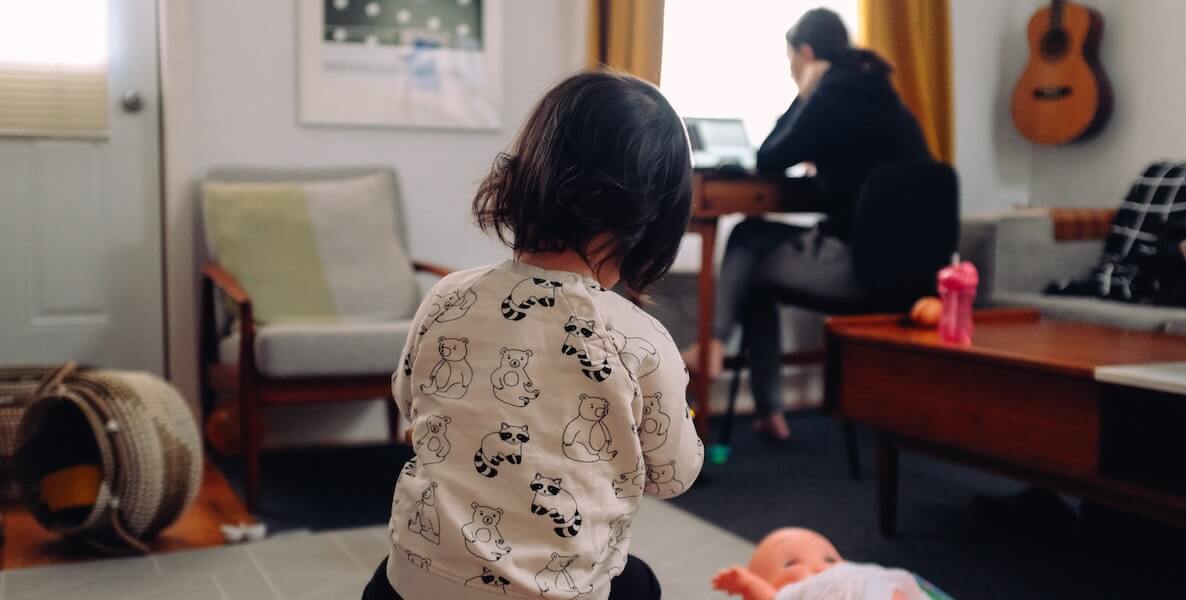For decades, the U.S. has been an embarrassment in its lack of policies for working parents, falling behind countries like Sweden, Norway, Iceland, and Estonia…the U.K., France, Italy, Germany, and Spain. The list goes on.
But it hasn’t always been that way: During World War II, the 1941 Defense Public Works Law provided child care for the children of women who stepped into jobs while men were off fighting overseas.
After the war, that coverage ceased to exist—not coincidentally. “There was an interest in wanting men to have those jobs, and Black and immigrant women to keep their jobs as domestic workers and in other segregated occupations,” explains Julie Kashen, a senior fellow and director for women’s economic justice at The Century Foundation, a nonpartisan think tank.
In the 1970s, the U.S. was on the verge of making universal child care happen again, with the bipartisan Comprehensive Child Development Act—until Pat Buchanan, then a consultant to Richard Nixon, launched a propaganda campaign that led the president to veto it. Never again has the idea had any serious traction in the U.S., except as one of former Democratic presidential candidate Elizabeth Warren’s platforms (and, to a milder extent, Bernie Sanders’, too).
We’ve seen wars, walks on the moon, the fall of the Wall… Apple and Amazon and Tesla—but not the establishment of care for our country’s future generations? Never mind a version that provides high-quality, accessible care for all families, while adequately compensating the people providing it: Today, most early childhood educators make below $11 per hour—poverty wages.
“Parents are not just parents,” Barghaus says. “Parents are our neighbors, our coworkers, our essential service providers and our communities. And so if we provide high-quality early care and education for kids, and their families benefit from that, it also helps support collective well-being and health and our local economy. Absolutely.”
The pandemic has only laid bare the need for care: From March of last year through the start of September, more than 260 licensed child care programs across Pennsylvania permanently closed; more than 400 in the Commonwealth were temporarily shuttered.
The pressure on parents—particularly women, and especially women of color—has been brutal. Through January of this year, 2.3 million American women have dropped out of the labor force since the start of the pandemic, compared to 1.8 million men. In December, women lost 100 percent of the 140,000 jobs that didn’t experience growth in the country.
In Philly, the unemployment rate for women is practically double what it was a year ago: 6 percent versus 3.1 percent. The Philadelphia Federal Reserve reported that in the greater Philly region, our employment rate fell 8 percent between 2019 and 2020, with Black men and women and Latina women hardest hit. Among those groups, employment rates dropped by as much as 20 percent.
But now, with Pennsylvania due to receive about $1.2 billion in child care relief funding through the American Rescue Plan—some of which will come to Philly—can we actually move the needle in a way that benefits parents, children, and the city at large?
“That’s the million-dollar question,” says Katie Barghaus, executive director of the Penn Child Research Center. “This really is a strategic moment, and we need to build on the good work that’s already underway to support children and families, regardless of race and class or socioeconomic background.”
And we can’t do it willy-nilly: Experts say we need to focus on systemic, sustainable and evidence-based solutions, and ensure that we monitor those solutions, and support them across time.
The economic case for universal child care
If you don’t have children, your life is still likely being affected by the lack of universal child care here. Right now, you probably have a colleague, or an employee, or a boss who’s unable to work because of a child care conflict. And that doesn’t just affect morale: It affects the bottom line.
As Johanna K.P. Greeson, associate professor in the School of Social Policy & Practice at Penn, wrote last week in a Penn Today article, “Let’s remember that what’s good for gender equality is good for the economy as well as society.”
In fact, in a report Kashen co-authored with Sarah Jane Glynn of the Center for American Progress and Amanda Novello of The Century Foundation, researchers found that there was a likely loss of $64.5 billion across women nationally over the course of a year because of inadequate, insufficient, or lack of child care altogether.
RELATED FROM THE CITIZEN
Local ad agency Truth & Consequences proves how taking great care of employees—like providing 16-week paid maternity and paternity leave—can benefit the bottom line
“That’s the equivalent of losing the GDP of West Virginia or New Hampshire. You lose a whole state!” Kashen says. “Whereas on the flip side, when you do invest, you can create good child care jobs, you can create good jobs in indirect services where child care workers spend their money, and you support parent labor force participation, especially of mothers. Investing in child care has this really significant impact on creating jobs and the economy.”
Some reports project that investing in child care would lead to the creation of 2 million more jobs around the country. And according to the Economic Policy Institute, access to affordable (or free) quality care could save Pennsylvania families on average $6,800, freeing up about 12 percent of their annual income to spend on other things—which could expand the state’s economy by $6.1 billion.
To do it right, Philly would have to be mindful of creating child care that reflects today’s job market: It’s not helpful to parents to have really great child care if it ends at 3pm. It’s not helpful for child care workers to continue making poverty wages—that only devalues the work, turns off would-be employees, and sends existing workers packing when a higher-paying job arises. And it’s not helpful if child care only serves kids in a limited age range.
Universal child care in other states
In Massachusetts, which was a pioneer in affordable health care well before Obamacare, legislators last month introduced a promising bill, Common Start, that addresses these child care issues thoughtfully. The bill calls for, among other things, early education and care for children from birth through age 5, as well as after- and out-of-school time for children ages 5 to 12, and for children with special needs through age 15.
It also calls for lower-income families to be able to access high-quality care for free, with no one paying more than 7 percent of their income towards care. And it calls for programs that are available in early education and child care centers, private homes, and schools—the same settings where early education and child care is provided now; that provision ensures that smaller and community providers aren’t pushed out of the market.
Massachusetts’ mindfulness came from holding multiple community forums, and building a comprehensive coalition: They brought together unions, community organizations, existing child care providers from across the spectrum, as well as parents and grassroots advocates.
“When you do invest, you can create good child care jobs, you can create good jobs in indirect services where child care workers spend their money, and you support parent labor force participation, especially of mothers,” says Kashen. “Investing in child care has this really significant impact on creating jobs and the economy.”
Sade Moonsammy, interim executive director at Family Values @ Work and Labor Project for Working Families in D.C., points out that Massachusetts also used the experience—the coalitions and the media coverage and the messaging—from its success with Paid Family Leave, a state-offered, tax-funded benefit providing anyone in Massachusetts up to 26 weeks of paid leave for medical or family reasons. “It’s important to use the momentum from one issue to spur along another issue,” she says.
 In Philly, that could look like piggybacking off of last year’s passage of the Domestic Workers Bill of Rights. Or it could look like piggybacking off of our universal pre-K program; except instead of funding it with a soda tax, which ends up largely coming out of the pockets of the families who most need the service anyway, we could use our American Relief Act funding to get it started.
In Philly, that could look like piggybacking off of last year’s passage of the Domestic Workers Bill of Rights. Or it could look like piggybacking off of our universal pre-K program; except instead of funding it with a soda tax, which ends up largely coming out of the pockets of the families who most need the service anyway, we could use our American Relief Act funding to get it started.
And instead of dragging our feet on making it happen, maybe we could fast-track: In Multnomah County, in Oregon (which includes Portland) this past November, voters there voted “yes” on a ballot measure calling to establish a tuition-free preschool program, that would be funded by taxing higher-wage earners.
Lessons learned from Quebec
Central to the call for universal child care is the charge that any ol’ child care simply won’t do. It must be high-quality early childhood education and care, and it must be sensitive to the needs of the community it serves.
Quebec, for example, did famously establish a universal child care program in the late ’90s, that served parents—namely mothers—and the economy well: The participation of mothers in the workforce increased—from 63 percent in 1996 to 75 percent in 2011, a rate faster than the national average—as did the incomes of economically disadvantaged households.
But studies continued to find negative outcomes on children: Teens who’d gone through the program later reported “a significant worsening in self-reported health and in life satisfaction.” The findings spotlighted the fact that the quality of care for children is critical—and that low-quality care could potentially be more damaging than no care at all.
RELATED FROM THE CITIZEN
Ithaca, New York, eliminated the biggest barrier to civic engagement among parents by offering free child care at city meetings. Could babysitting bring more voices into the conversation in Philly, too?
Barghaus, of the Penn Child Research Center, concurs. “Research shows how important high-quality care and education is for all children,” she says. “We’ve seen from multiple studies across time the positive influence on long-term outcomes and short-term outcomes. Kids, yes, do better in school—but they also have better workforce participation, earnings, better health and wellbeing outcomes.” And some of those impacts, she says, are even further magnified if you’re coming from an impoverished background.
Quality, Barghaus says, is the lynchpin. “And that’s a function of a ton of factors—you could talk about that forever—but in the research we typically think about it as having these two big buckets: one being process quality, and the other being structural quality.”
Process quality, she explains, is the stuff you see, when you’re in an early care setting: the interactions between the early educators and the kids, and the kids between each other—high-quality relationships that really foster high quality experience. Structural quality, she goes on, is a little bit more indirect but still important: That’s everything in the setting that’s going to foster these high-quality interactions, like the educator’s training and education, the ratio of kids to educators, wages and benefits for educators, leadership, parental involvement.
Many states are working to measure, monitor, and improve quality. Pennsylvania’s Keystone Stars, for example, is a shorthand, what Barghaus refers to as a kind of Zagat rating for early care and education.
RELATED FROM THE CITIZEN
Pre-K is great. But, as the Infant Caregiver Project show, helping parents of even younger kids might be even better.
“Higher ratings in this system do relate to improved child outcomes,” Barghaus says. “And so that’s an important system that needs to be in place, really, to understand where do we have high-quality experiences happening, how do we support those folks, and then how do we bolster folks who are still working towards a higher quality level?”
When we move in the direction of supporting children and child care educators, we move in the direction of supporting parents—and that’s where the bigger-picture effect on our economy and our society come in to play.
“Parents are not just parents—nobody has a unidimensional persona,” Barghaus says. “Parents are our neighbors, our coworkers, our essential service providers and our communities. And so if we provide high-quality early care and education for kids, and their families benefit from that, it also helps support collective well-being and health and our local economy. Absolutely.”
Put another way, she says: “It’s kind of like one lever that has a lot of dominoes fall into place once it’s pulled.”
The Citizen is one of 19 news organizations producing Broke in Philly, a collaborative reporting project on solutions to poverty and the city’s push towards economic justice. Follow the project @BrokeInPhilly.
Photo by Charles Deluvio / Unsplash








